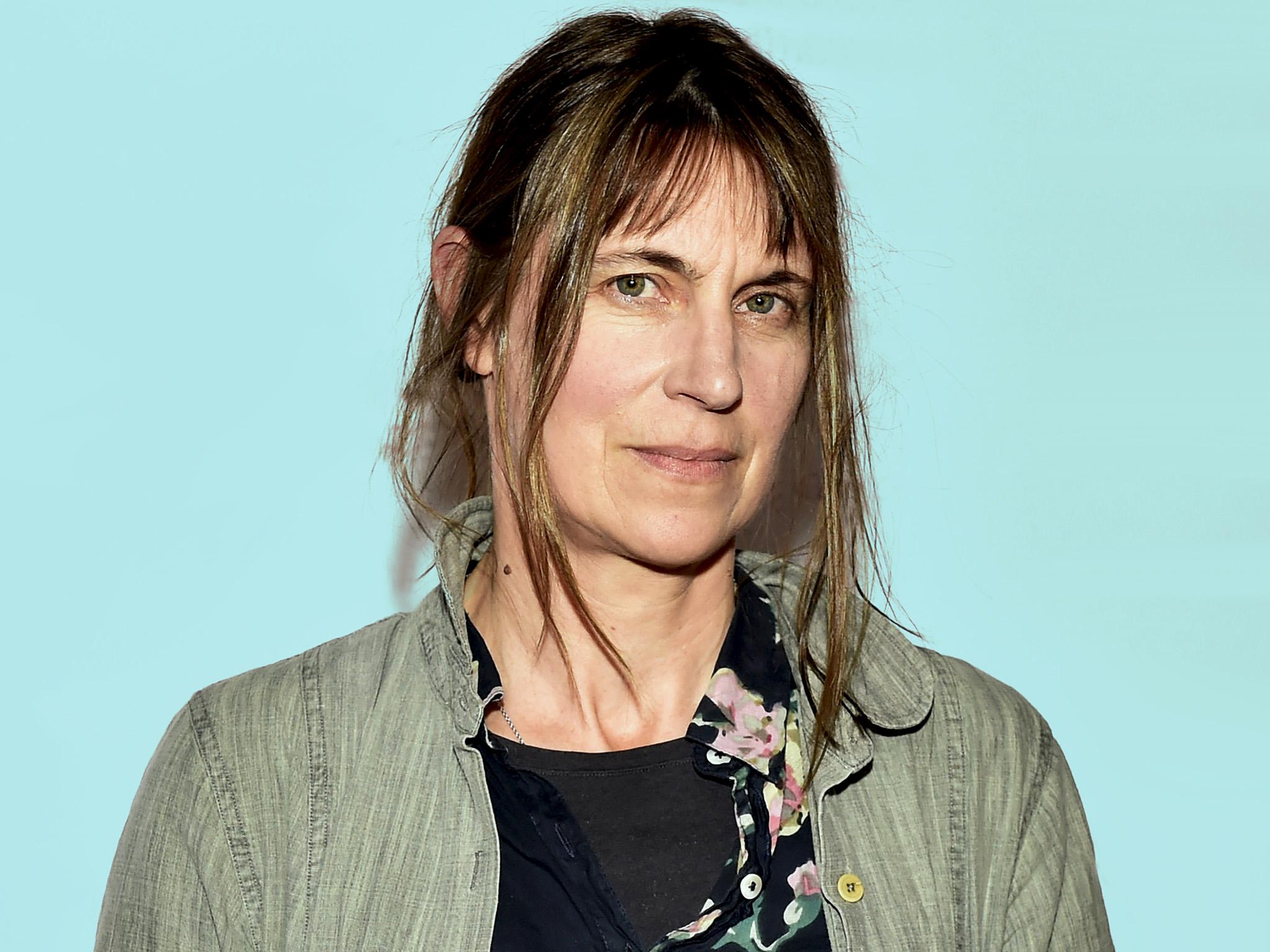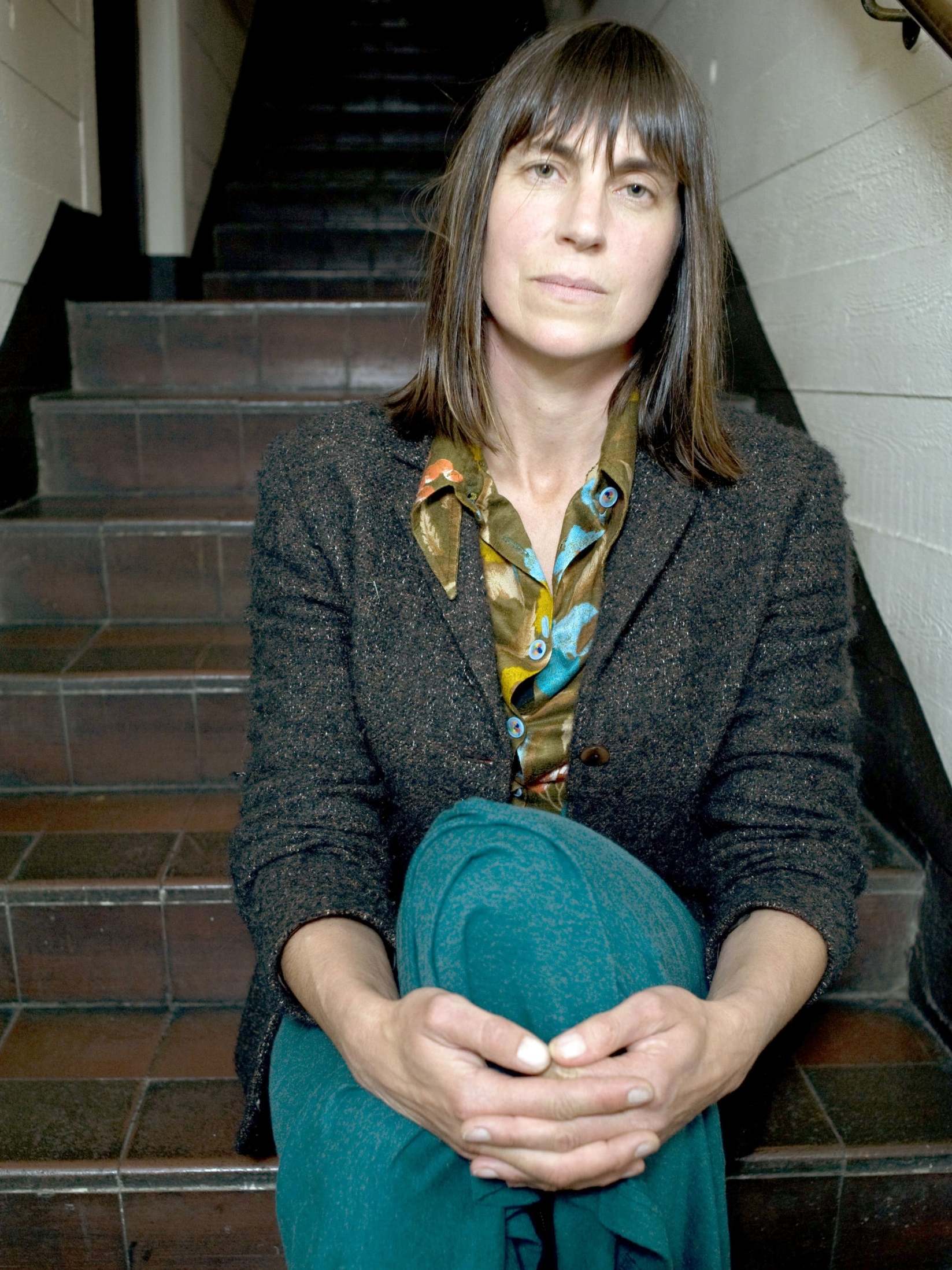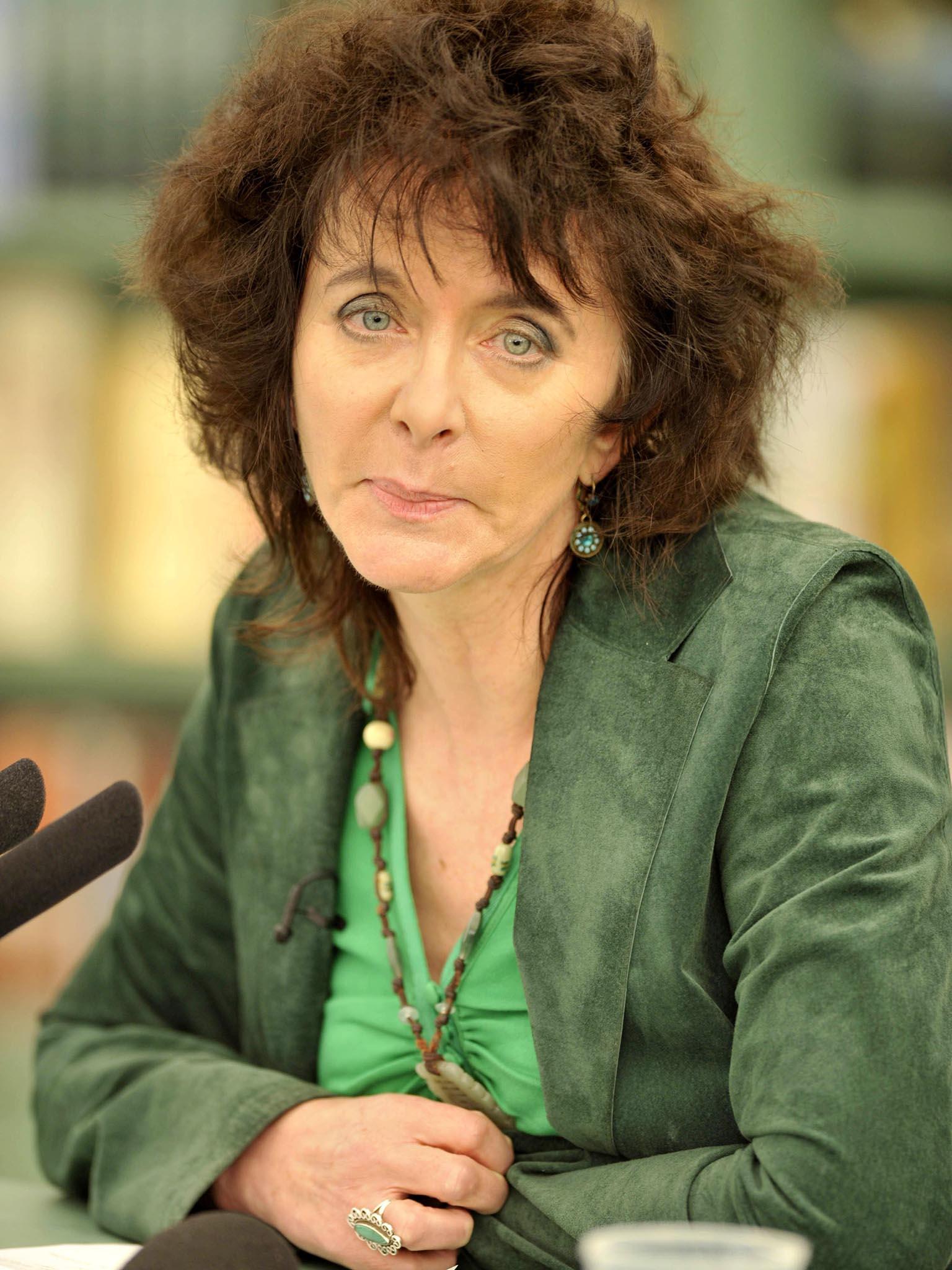Alice Oswald: A formidable yet humble talent whose poetry embraces nature and song
It has taken Oxford university more than 300 years to elect its first-ever female professor of poetry. Paul Taylor went along for the inaugural lecture

At the examination schools in Oxford, a large turn-out of litterateurs, and attendant laity as the event is open to members of the general public, were gathered last week at 5.30pm on the kind of tonic, nippingly cold, clear evening that’s a mid-November speciality. In their good-humoured mixture of hopeful chatty confidence and tense expectancy, the assembled crew ran the gamut from the male undergraduate with the lanky pink candyfloss hairdo and the black PVC miniskirt to the retired academic brigade who were done up like jaunty immersion heaters. We were there to attend to an epoch-making and thrilling occasion.
Alice Oswald was about to deliver her inaugural lecture, entitled “The Art of Erosion”, as the first-ever female professor of poetry in the chair’s history, which was instituted in 1708. A don asked us to be upstanding. Making their way down the central aisle of the T-shaped, part-panelled, portrait-hung room came a bustling posse of dons in the black and red “drag” of formal academic dress. In their midst was the woman of the moment – apprehensive and self-possessed.
The 54-year-old Oswald read classics at this university. Now she is back, having been inundated with prizes for her brilliantly audacious reworkings of Homer’s two great epics. Memorial (2012) is an “excavation” of the Iliad. It has no bones about discarding the narrative in order to lay out the 200-odd war dead. It feels, awesomely, like a march-past of unwittingly foredoomed warriors within an “oral cemetery”. Oswald talks about how, rather than directly translated, the words of the original function as the peep-hole “openings” through which she peers “to see what Homer was looking at”.
There are extended similes that startle one into fresh perceptions. Take the moment when she describes the human animal’s unappeasable appetite for slaughter as “like restless wolves [who] never run out of hunger [and] can eat a whole stag”. We get a whole new take on deadly ravenousness when it is suddenly perceived as a resource that can be “run out of” rather than a hideous restriction. The earth seems to tilt on its axis differently.
Nobody (2019) recasts the Odyssey as a collage of water stories in which identities flit around in world of radical fluidity. There is an unfortunate man whom Agamemnon sets out to spy on – and monitor the virtue of his wife Clytemnestra while he is away fighting in Troy. This functionary is dumped by her future lover, Aegisthus, on a stony barren island. In Oswald’s poem, which is virtuosic in its shape-shifting, this marooned character sometimes melts into the figure of Odysseus blown off course as he tries to sail back to his homeland after the war is over.
The coordinates of this piece are amazing. It reaches back into the prehuman and forward into a kind of sci-fi. “The spider when it wishes to travel,” we are told, “simply lets out a silken/aerial/aerial/electrostatic alert through every hair.” These poems establish that, in her protean prowess, Alice Oswald deserves the pre-eminence in the realms of poetry that is justly accorded to Caryl Churchill among playwrights.
In her protean prowess, Oswald deserves the pre-eminence in the realms of poetry that is justly accorded to Caryl Churchill among playwrights
In an era that specialises in what some would call the tunnel vision of identity politics, it is bracing to encounter a formidable talent whose instinct is to take the long view. You would be sorely mistaken if you suppose that she elevates herself above the fray. After graduating from Oxford, she trained as a gardener, following the illustrious precedent of her mother, Mary Keen.
The female perspective is fiercely there in her art but usually incorporated within it rather than foregrounded. Earlier this year, to honour and contextualise an imminent revival of Harold Pinter’s play Betrayal, I wrote a feature for The Independent about works of art that tell their stories backwards.
I found myself riled by a facile, joky piece in which he imagines himself on a winding course back through the cushy, spa-condition, isolation tank of the womb to the Big Bang. Somewhat contrary to medical science, he willed that the Woody-speck would experience orgasmic pleasure too. I fell to wondering whether there was a humane female antidote to this beta-male smugness.
Then I remembered Oswald’s remarkable poem entitled “The mud-spattered recollections of a woman who lived her life backwards”, which appears in her 2005 collection Woods Etc. The woman tells of the terrible morning when “for maybe the hundredth time, they came to insert my third child back inside me” and then of her devastating realisation that “I’d never see my darling daughter again”. As a way of using the counter-clockwise approach to say something unfamiliar and searching about life, you’d have to agree that that is a considerable step up from imagining Baby’s First Climax.
It’s invidious and it’s upmarket. No wonder it draws the attention of the media, who treat is as though it were a variant of one of those ‘Survivor’ TV shows – routinely avid for elimination but picturesquely repositioned among the Dreaming Spires
Back in the examination schools, Ros Balester, the chair of the Oxford English faculty, welcomes Oswald, characterising her (with a delighted smile) as the 46th professor in the history of this chair, and “the first woman to hold the post”. The announcement was met with a spontaneous round of warm fervent applause. To achieve this chair, the professor has to win an election in which all graduates of the University have the right to cast a vote. You can see why it draws the attention of the posher dailies. It’s invidious and it’s upmarket. No wonder the media tend to treat it as if it were a variant of one of those Survivor TV shows – routinely avid for elimination but picturesquely repositioned among the Dreaming Spires.
It works best when the incumbent’s perceptive analyses of other people’s poetry do double duty as a mesmeric insight into his – now her – own creativity. This was outstandingly the case with, say, Seamus Heaney, who delivered the statutory three lectures a year between 1989 and 1994. They were gathered in the very nutritious collection The Redress of Poetry (2002). From what one heard and witnessed at her inaugural, you can tell that this is also going to be the case with Oswald.

She began with the observation that one has to strike a balance between “the livingness and the lastingness” of poetry and that the invention of printing has given a skewed priority to the latter. Accordingly, she announced that she was going to dispense with the convention of projecting the texts of the poems under discussion on to a white board. What she projected were lovely images of seaweed set against a deep Prussian blue background. They were specimens from Oxford’s and the famed Pitt-Rivers museums and shown as an example of how sunlight’s erosion of iron salts was a capacity harnessed in the early days of photography. This offered an auditory parallel to the “trace” she would like the quoted poetry to leave within us. She apologised for the apparent contradiction. She was reading from a typescript of the lecture but expressed the hope that she would evolve into more of a performance-poet – as Homer (whether he, she or they originally) must have been.
It came across powerfully that one of the reasons that Oswald’s poetry is phenomenal is the degree to which her imagination is stirred by non-human phenomena that are in slow transition from death to life or vice versa. She wants to capture that process – micro-sonically, as she put it. She talked of a piano left outside to the elements, of the day-to-day log she had kept of the chromatic progress in a ripening branch of plums. She never did see the colours in the moment of shifting because she accidentally snapped the branch, she told us with rueful comedy.
In his 1916 poem “The Coming of Wisdom With Age”, WB Yeats wrote that “through all the lying days of my youth/ I swayed my leaves and flowers in the sun./ Now I may wither into truth.” With Oswald, it is as though the whole world – and all the art that she mentions – is in a process of weathering into truth. She talked about Beckett’s partiality to art that wears itself out – as when he described the surface of a Beethoven piano piece “eaten into by large black pauses” or asked a group of actors, with whom he was rehearsing Waiting for Godot, to try the lines again “this time with the moonlight in their voices”.

In her poem Memorial, Oswald sometimes puts down on the page a whole simile twice in succession. A lovely feature of the lecture was the incantatory effect of doing the same thing with the poetic passages as when she allowed us to savour twice over these lines by the Cavalier poet Robert Herrick (1591-1674):
So Good-luck came, and on my roofe did light,
Like noyse-lesse snow, or as the dew of night;
Not all at once, but gently, as the trees
Are, by the Sun-beams, tickel'd by degrees.
Herrick is more commonly thought of as an exquisite miniaturist but Oswald interprets him by her own lights as a soul engaged in the spiritual struggle of not wanting to get in the way, in a reality that is by no means colour-fast either in nature or in the mind.
Last June there was a lively piece by Hal Jensen in the Times Literary Supplement entitled “Will Oxford ever elect a female professor of poetry?”. It bustled with informativeness about the other women who had tried but failed to become professor – including the great UA Fanthorpe in 1994 and 10 years later Anne Carson, the Canadian poet who is arguably Oswald’s transatlantic counterpart – an exact and exacting classical scholar with a playful streak. The difference is that the drily deadpan and worldly Carson comes across as very urban. She would be likely to include Proust, Sappho and Homer in any plans for a dinner party. Oswald would invite Homer too, for sure, but would be more likely to team him, say, with the composer (who was present at the inaugural) who wrote the zooming symphony for cattle grids.
She made her name with ‘Dart’, which traces the song lines of that Devon river. The irony is that while delivering a lecture on the art of erosion, Oswald was not seen to take a single sip of the stuff
Jensen’s piece struck a snide note though in its treatment of Ruth Padel, the woman he calls the “Lady Jane Grey of the chair”. Elected in 2009, Padel chose to step down before she was officially enthroned and is now expunged from the record. She is herself a formidably fine poet. Darwin: a Life in Poems, her memoir of her great-great-grandfather, is a remarkable exercise in conveying life by dwelling on epiphanic moments and shifting perspective. Her critical anthologies – 50 Ways of Looking at a Poem, The Poem and the Journey, and 60 Poems for the Journey of Life – may not have particularly alluring titles, but they are alive with penetrating, companionable insights and should be on every poetry lover’s shelves.
Padel made the fatal error though of tipping off a journalist that there were allegations that Derek Walcott, the Nobel laureate and frontrunner in the race, had sexually harassed students while teaching at Harvard. Walcott withdrew from the contest. Jensen jeers that 10 years later, in the#MeToo era, Padel would “no doubt have been borne aloft on a wave of moral superiority”. That is sour. Isn’t it just as likely that in the atmosphere of #MeToo, Padel would not resort to so uncircumspect and reckless an approach. It is a thousand pities all round.

Padel was defended as a person and praised as a poet by Simon Armitage, who went on some time later to be elected to the chair himself. Indeed he is Alice Oswald’s immediate predecessor. Armitage has just announced that he is using his fee as poet laureate (the gig to which he went straight on) to fund a new award – the Laurel Prize, which will be given to a poet for eco-themed work that addresses the climate crisis.
It would be piquant if, in a few years, Oswald herself were to win this. She is, after all, the editor of the 2006 anthology The Thunder Mutters: 101 Poems for the Planet. In her typically fastidious and engaging introduction, she writes that her self-imposed brief is “putting our inner-worlds in contact with the outer world – a deep, slow process that used to be the remit of the rake”. That last phrase has a wonderful poised wit – while also prompting thoughts of a Restoration comedy in which a spirited heroine puts her foot on the kind of rake whom she needs to humanise. She would not meet the usual painful fate of a person treading on this particular gardening implement. But that takes this piece into the world of theatre... into which we will trespass more purposefully in a short while.
Philip Larkin delivered one of his delectably lugubrious jokes when he observed: “Deprivation is for me what daffodils were for Wordsworth.” By the same token, you’d have to say that the element of water is for Alice Oswald what deprivation was for Larkin. She made her name with Dart, which traces the song lines of that Devon river. The irony is that, while delivering a lecture on the art of erosion, Oswald was not seen to take a single sip of the stuff.
Her brother is the intense and highly intelligent actor Will Keen and she is married to the writer/actor Peter Oswald, who wrote plays for Shakespeare’s Globe when it was run by Mark Rylance. His adaptation of Apuleius’s The Golden Ass gave Rylance one of his most riotous roles, playing the man who takes the wrong drug and winds up transformed into a donkey (with an appendage suggested by a mallet dangling between his legs) rather than into his fancied guise as wise owl. One would love to see Rylance do a one-man performance of Oswald’s mind-alteringly metamorphic poem, Nobody.
Just as one would like to hear Michelle Terry, the Globe’s current AD deliver Memorial.
I would like to see Oswald seriously wooed by a good producer to deconstruct Shakespeare’s Troilus and Cressida. There is a lot of #MeToo opportunity in this piece
It was the director Deborah Warner who first alerted me to the power of Dart, which I fancy she was at one time thinking of trying to alchemise into a piece of theatre. This was shortly after the world-wide success of Fiona Shaw’s solo performance of The Waste Land. TS Eliot’s multi-voiced poem has the epigraph “He Do the Police in Different Voices” in his widow’s famous edition of the drafts. Warner was doubtless drawn to Dart because there it is a case of “he do the river in different voices”.
Contenders for the poetry chair have to publish a statement of intent. Oswald’s included a desire to tackle verse-drama and song-cycles. So one is already drawing up a wish list. In an ideal world, a theatre would commission her to follow her own instinct, giving her the freedom to find new forms without a producer breathing down her neck – a set-up that Ella Hickson caustically champions (and doubts ever seeing) in her controversial 2018 play The Writer.

Failing that, I would like to see Oswald seriously wooed by a good producer to deconstruct Shakespeare’s Troilus and Cressida. There is a lot of #MeToo opportunity in this piece. Cressida’s father has betrayed Troy to join the Greek camp. He’s left her in a tricky position and then adds insult to injury by exploiting her use as a trading chip. Her Trojan lover Troilus, who is not the last word in stability, cannot provide a firm shoulder for her to cry on. In A Double Sorrow (2014) Lavinia Greenlaw, who is one of Oswald’s most talented peers, has already offered a whole book of astringent, meditative vignettes on Chaucer’s version of the story. But this still leaves Shakespeare’s angle on it to be reinvestigated. Perhaps – in the way it weirdly combines the kind of challenges she set herself in Memorial and Nobody, this putative project would feel too much like a busman’s holiday to her. But I think the potential audiences would be highly stimulated and grateful.
The potential of the new professor of poetry is vast. Anne Carson’s latest book has, coincidentally, a witty fascinating chapter on “The Anthropology of Water”. That element is bound to cascade and erode its way through Oswald’s future endeavours during the four years of her Oxford gig. It’s going to be a risky exhilarating, serendipitous voyage. Just don’t forget to wear a lifebelt under your gown.
Join our commenting forum
Join thought-provoking conversations, follow other Independent readers and see their replies
Comments